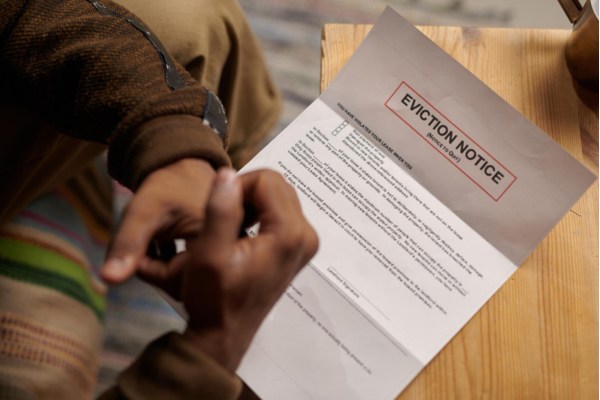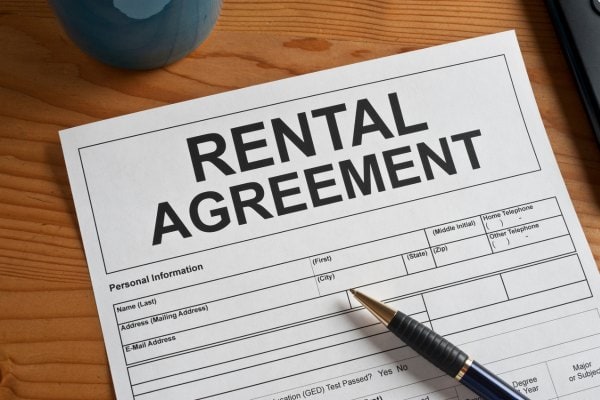What a Landlord Cannot Do in Maryland – Rules Explained

You move into your new rented property feeling excited for a fresh start. Suddenly, your landlord decides to raise the rent or enter your unit without telling you. In moments like this, you might feel stuck and unsure about your rights.
Learning about Maryland landlord-tenant laws helps you understand where you stand. These rules are meant to protect you and guide landlords on what they can and cannot do, ensuring fair treatment and safe living spaces. From handling security deposits to setting rent prices, Maryland law sets clear limits that landlords must follow.
Some restrictions in Maryland are strict and can surprise both landlords and tenants. Knowing these details helps you stay informed and avoid unexpected conflicts.
Wondering what a landlord truly cannot do in Maryland? Keep reading to find out.
Contents
- 1 Maryland Landlord-Tenant Law
- 1.1 1. A Landlord Cannot Evict an Active Duty Service Member
- 1.2 2. Security Deposits Are Subject to Legal Restrictions
- 1.3 3. Eviction Practices Must Follow the Law
- 1.4 4. Landlords Must Not Retaliate Against Tenants
- 1.5 5. Discrimination Against Tenants Is Strictly Prohibited by Law
- 1.6 6. Landlords Are Required to Maintain Safe and Habitable Living Conditions
- 1.7 7. Limits on Entry Must Be Respected
- 1.8 8. Lease Terminations Must Follow Legal Requirements
- 2 Conclusion
- 3 FAQs
- 3.1 What happens if a landlord fails to return the security deposit on time?
- 3.2 Can a landlord include any clause they want in a Maryland lease?
- 3.3 Are there limits on late fees or application fees that landlords can charge?
- 3.4 What essential services must a landlord provide to tenants?
- 3.5 Can a landlord evict a tenant during extreme weather conditions?
Maryland Landlord-Tenant Law
Maryland landlord-tenant law creates a clear structure for renting a home. These rules guide everything from the start of a lease to returning a tenant’s security deposit. While the law covers many details, the main goal is to make sure both landlords and tenants understand what is expected so that each side can avoid major disputes.
When you sign a lease in Maryland, the landlord no longer has full control over the property. Even though they own it, they can’t just enter the rental unit whenever they feel like it or suddenly demand extra payments outside of what the lease agreement states. For example, if a landlord wants to increase rent prices, they usually need to wait until the lease term ends and provide proper notice, rather than surprising you with higher rent in the middle of your stay.
Maryland law also lays out strict rules on how security deposits are handled. Landlords have to keep this money safe and return it within a set time if the tenant has not caused damage beyond ordinary wear.
Rules also protect tenants from unfair eviction, meaning a landlord cannot simply decide to remove someone without following the legal process.
Beyond state laws, local areas such as Baltimore City or Montgomery County often set additional standards. These can include rules about rent control or extra safety checks in rental units.
A landlord who ignores these local requirements can end up facing fines or legal action, even if they believe they are following Maryland state law.
1. A Landlord Cannot Evict an Active Duty Service Member
Imagine packing your bags for a long military deployment and then coming home to find an eviction notice taped to your door. This is exactly the kind of situation Maryland law and the federal Servicemembers Civil Relief Act, known as SCRA, work hard to prevent.
Under the SCRA, landlords are not allowed to evict tenants who are on active duty military service or their dependents for unpaid rent without first going through the proper legal process. Even then, they need a court order, and the tenant’s military status must be fully considered before any final decision.
Maryland landlord-tenant law supports this protection, giving service members peace of mind when they have to focus on duty away from home.
If you are an active duty service member and you provide proof of your orders, eviction proceedings can be paused or even dismissed. The landlord must also inform the local district court about your military status if they want to pursue eviction through a default judgment.
There’s more. Service members who receive permanent change of station orders or deployment orders for at least 90 days can also end their lease agreements early without facing penalties. This means you can leave your rental property without worrying about extra months’ rent or breaking your residential lease terms.
Landlords who ignore these protections and move forward with an eviction anyway can face serious consequences. Violations can lead to court sanctions, financial penalties, and even damages owed to the tenant.
2. Security Deposits Are Subject to Legal Restrictions
You finally find the perfect rental property, and just when you think you can relax, your landlord asks for an enormous security deposit. In Maryland, this kind of surprise is not allowed, thanks to strict security deposit regulations that protect tenants from unfair demands.
Maryland law sets a clear limit on how much a landlord can collect. For most tenants, the maximum security deposit is one month’s rent for leases signed on or after October 1, 2024 (see details here). There is a narrow exception allowing up to two months’ rent for tenants who qualify for certain utility assistance programs and meet specific written agreement requirements.
For leases signed before this date, landlords can still require up to two months’ rent.
Once a landlord collects the deposit, they have to handle it properly. By law, the money must be placed into a separate, interest-bearing escrow account within 30 days. This escrow account protects your money and ensures it is not used for other purposes. Along with this, landlords must give you a written receipt and let you know where the money is being kept.
When your lease ends, you should not have to chase down your deposit. Maryland landlords are required to return the tenant’s security deposit within 45 days of moving out. If they plan to make deductions, they must provide an itemized list explaining each charge along with any interest earned.
Landlords who ignore these rules face serious penalties. If they wrongfully withhold your money, you can take legal action to recover up to three times the withheld amount plus attorney’s fees. These penalties encourage landlords to follow the law closely and treat tenants fairly.
Knowing your rights about security deposits helps you feel more confident and prepared when signing a lease agreement. It also reminds landlords that Maryland takes tenant protections seriously, from the first rent payment to the last day in the rental unit.
3. Eviction Practices Must Follow the Law
No one expects to come home and suddenly lose access to their own space. In Maryland, landlords cannot take eviction into their own hands, no matter how frustrated they might feel. The law sets clear rules to protect tenants from being forced out without proper steps.
Before a landlord can evict someone, there must be a valid legal reason. Common reasons include unpaid rent, serious lease violations, or staying in the rental unit after the lease term ends.
Even then, a landlord cannot act alone. They need to provide the correct notice: a 30-day notice for lease violations, a 14-day notice for dangerous behavior, and in cases of unpaid rent, they must still file through the court even if no formal notice is required beforehand.
All evictions in Maryland must go through the court system. A landlord cannot change the locks, turn off utilities, or remove belongings on their own. Only a sheriff has the authority to carry out an eviction once the court has approved it. Tenants also have the right to contest the eviction and present their side before any final decision is made.
When it comes to personal belongings left behind, landlords must handle them carefully. They cannot immediately throw items away or claim them as their own. Maryland law requires landlords to follow specific steps to give tenants a fair chance to collect their things.
Following these rules not only keeps landlords in line with Maryland landlord-tenant law but also helps them avoid costly legal battles and damage to their reputation.
4. Landlords Must Not Retaliate Against Tenants
Standing up for your rights shouldn’t come with threats or punishments. Yet, some tenants worry that speaking up about a leaking roof or unsafe wiring might lead to trouble with their landlord. In Maryland, the law makes it clear that retaliation is not an option.
When a tenant reports unsafe living conditions, joins a tenants’ group, or files a formal complaint, they are exercising rights protected under Maryland landlord-tenant law. In response, a landlord cannot raise rent prices, cut essential services, or push for eviction as a form of punishment. These actions are considered retaliatory and can carry serious consequences.
If a tenant believes they are facing retaliation, they can use it as a defense in an eviction case. A successful defense may lead to the landlord paying attorney’s fees and court costs. In some cases, the court might also award damages to the tenant and stop the landlord from carrying out the harmful action.
Maryland law goes even further by creating a strong presumption of retaliation if a landlord acts against a tenant within six months after the tenant exercises a protected right, like reporting housing code violations or joining a tenant organization. In this situation, it becomes the landlord’s job to prove that their actions had nothing to do with the tenant’s complaint.
This protection reminds tenants that they have every right to demand safe and fair treatment without fear of losing their homes. For landlords, it serves as a clear warning that using power to silence tenants can lead to costly legal battles and damage to their reputation.
5. Discrimination Against Tenants Is Strictly Prohibited by Law
Are we still stuck in the 60s? It might feel that way when some landlords decide who gets to live in a rental property based on race or religion. Discrimination isn’t just outdated, it is illegal and goes against every principle of fairness. In fact, there were 34,150 fair housing complaints filed in 2023, up from the previous year, showing that this problem isn’t going away.
Federal and Maryland fair housing laws make it clear: landlords cannot deny a rental unit or change lease agreements based on race, color, religion, national origin, sex, familial status, disability, marital status, gender identity, or sexual orientation.
These protections aim to give all Maryland tenants equal access to safe and fair housing, regardless of their background or identity.
Discrimination can take many forms. A landlord might refuse to rent, set different security deposit requirements, steer tenants toward certain neighborhoods, or make offensive remarks in rental property listings.
Even hinting that someone might not “fit in” crosses the line. Under Maryland landlord-tenant law, actions like these are serious violations and can result in strong penalties.
The Maryland Commission for Civil Rights oversees these cases and can enforce consequences such as fines, damages, and even the loss of a landlord’s rental license. A landlord who violates these protections may also face claims in local district court and be ordered to pay attorney’s fees or damages to the tenant.
These laws remind landlords that they cannot decide who deserves housing based on personal bias.
6. Landlords Are Required to Maintain Safe and Habitable Living Conditions
Waking up to freezing air because the heat stopped working or discovering mold in the bathroom can turn a rented property into a nightmare. Maryland landlord-tenant law protects tenants by requiring landlords to keep every rental unit safe and livable at all times.
Maryland law implies a “warranty of fitness for human habitation” in every residential lease, meaning landlords promise that the rental premises meet basic health and safety standards.
They must provide essential services like working plumbing, hot and cold running water, proper heat, and safe electrical systems. A rental property should also be free of pests and serious maintenance issues.
For properties built before 1978, landlords must comply with lead paint disclosure rules and complete risk reduction measures to meet Maryland state law requirements. This is especially important for families with children, as lead exposure can cause severe health problems.
Repair timelines are also clear.
Non-emergency issues must be fixed within a “reasonable time,” usually no more than 30 days. Urgent problems like plumbing leaks or broken heating systems in winter must be addressed within 24 to 72 hours.
When a landlord fails to make necessary repairs, Maryland tenants have options under the rent escrow law. Tenants can place rent payments into a rent escrow account held by the local district court until repairs are completed, or they can make repairs themselves and deduct the costs from future rent payments, up to $500 or one month’s rent.
7. Limits on Entry Must Be Respected
You wouldn’t want a stranger strolling into your kitchen while you’re having morning coffee. The same goes for a landlord stepping into a rental property without notice. Once a tenant signs a residential lease and starts living there, that rental unit becomes their private space, even though the landlord still owns it.
Landlords do have the right to enter a rented property, but only for specific reasons like repairs, inspections, or showing the unit to prospective tenants. Under Maryland landlord-tenant law, they must give reasonable notice, usually at least 24 hours, and can only enter at reasonable times, typically between 7 a.m. and 7 p.m.
There is no strict state rule defining “reasonable notice,” but most Maryland landlords follow the 24- to 48-hour standard to respect tenant’s rights and avoid issues in the local district court. Entering without any notice, unless there’s a true emergency such as a gas leak or fire, is considered a serious violation of privacy.
These limits help maintain trust between the landlord and tenant while protecting the rented property as a safe and comfortable home.
8. Lease Terminations Must Follow Legal Requirements
Getting a surprise message that your lease is ending can feel like the ground has been pulled out from under you. Ending a residential lease isn’t as simple as handing over keys or sending a quick text. Maryland landlord-tenant law makes it clear that landlords must follow strict rules when it comes to ending lease agreements.
For most month-to-month rental agreements, landlords need to give at least 30 days’ written notice. In some cases, like certain leases in Baltimore City or Montgomery County, that notice period can stretch to 60 days or longer.
These notice periods give tenants time to prepare for a move and secure a new rental property without rushing.
A landlord cannot use lease terminations as a way to punish tenants for reporting safety issues or for joining tenant organizations. Terminating a lease for retaliatory or discriminatory reasons violates both Maryland state law and federal protections against housing discrimination.
Some lease agreements include early termination clauses that allow tenants to leave before the lease term ends. As long as tenants meet the conditions, such as paying a fee or giving proper written notice, they can move out without facing unpaid rent claims.
On the other side, landlords who want to terminate a rental agreement early must show legal cause or rely on a valid lease clause. If not, tenants may have the right to remain in the rental unit or seek damages in the local district court.
Conclusion
Maryland law isn’t just a long list of rules; it’s a safety net designed to protect tenants and guide landlords toward fair and respectful practices. From strict limits on security deposits to clear notice requirements in lease agreements, these laws create a balanced environment where both sides know what to expect.
When landlords follow Maryland landlord-tenant law, they avoid costly disputes, protect their reputation, and keep rental property operations running smoothly.
For tenants, understanding these protections means you can feel secure in your rented property, knowing your tenant’s rights are backed by strong legal support. Whether it’s handling a security deposit, questioning sudden rent prices, or responding to an eviction notice, staying informed helps you act with confidence.
Rental laws can get complicated, especially when local district court filings, rent escrow accounts, or military status verifications are involved. In those cases, it’s always smart to seek legal guidance or trusted resources.
If you’re a landlord, law firm, or property manager needing to verify military status before taking action, consider using SCRACVS to confirm active duty details accurately. Click here to sign up at SCRACVS and verify the active duty status.
FAQs
What happens if a landlord fails to return the security deposit on time?
If a Maryland landlord fails to return a tenant’s security deposit within 45 days after the lease term ends, they can face serious consequences. Under Maryland landlord-tenant law, the tenant may recover up to three times the withheld amount plus attorney’s fees. Landlords must also provide an itemized list of deductions along with any interest earned in the escrow account. Ignoring these security deposit regulations can lead to disputes in the local district court and damage a landlord’s reputation.
Can a landlord include any clause they want in a Maryland lease?
No, landlords cannot add just any clause to a residential lease. Maryland landlord tenant law prohibits terms that waive tenant’s rights or conflict with state and local laws. For example, clauses allowing landlords to enter a rental unit without proper notice or to increase rent prices at any time are not valid. Lease agreements must follow Maryland state law, including clear details about rent payments, security deposit handling, and proper notice requirements.
Are there limits on late fees or application fees that landlords can charge?
Yes. Under Maryland law, landlords can only charge late fees if they are clearly stated in the written lease and cannot exceed 5 percent of the monthly rent payment. Application fees are also capped to prevent unfair costs for prospective tenants. These rules protect Maryland tenants from unexpected charges and ensure fair rental property practices. Violating these limits can result in refunds and possible legal action in the local district court.
What essential services must a landlord provide to tenants?
Landlords are required to provide essential services that make the rental property safe and habitable. This includes functioning plumbing, hot and cold running water, adequate heat, safe electrical systems, and pest-free living spaces. Maryland landlord tenant law also requires compliance with the Maryland accessibility code and housing code standards. Failing to maintain these services can lead to rent escrow actions, where tenants withhold rent payments until repairs are completed.
Can a landlord evict a tenant during extreme weather conditions?
While Maryland law does not specifically forbid evictions during extreme weather, landlords must follow the proper eviction process steps, including court approval and sheriff involvement. Evictions without legal cause, proper notice, or ignoring the tenant’s rights can be challenged in the local district court. Maryland tenants may also use rent escrow law or cite unsafe conditions as a defense to delay eviction proceedings during harsh conditions, protecting them from sudden loss of a rental unit.





